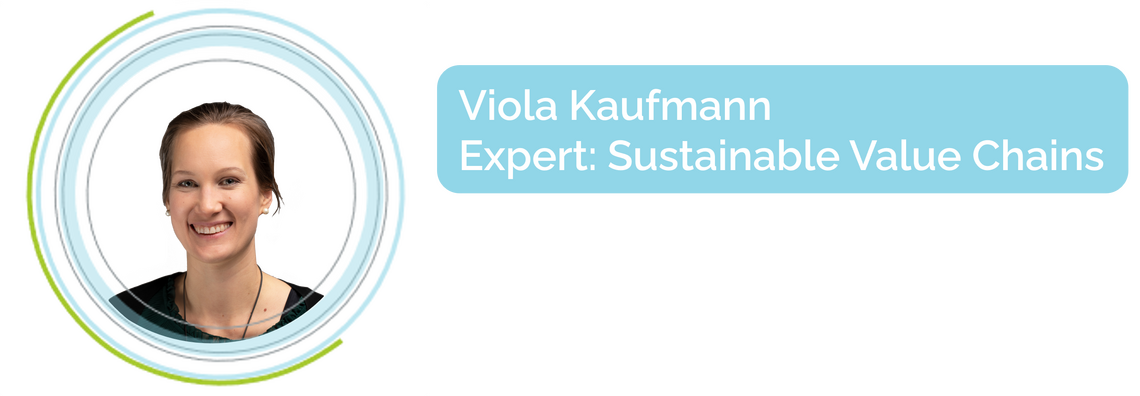Final Evaluation of the Coffee Innovation Fund
Mainlevel Consulting AG (Mainlevel) has been contracted by the Gesellschaft für Internationale Zusammenarbeit (GIZ) GmbH to conduct an evaluation of the project “Coffee Innovation Fund”.
This evaluation report provides an overview of the project’s results as well as learnings and recommendations to inform a possible follow-on project. Findings are structured along the GIZ evaluation criteria, based on the DAC-Criteria, namely: Relevance, Coherence, Efficiency, Effectiveness, Impact, and Sustainability. The evaluation will place a particular emphasis on the Effectiveness criterion where the project has the highest interest in knowledge.
The Coffee Innovation Fund is part of the program 'Sustainable Agricultural Supply Chains and Standards' and aims to increase the profitability of smallholder coffee farmers and promote a more equitable distribution of value added in the coffee supply chain. The fund is implemented through so-called development partnerships with the private sector. These partnerships leverage the innovative capacity of private companies alongside the resources, expertise, and experience of development cooperation, fostering possibilities to drive positive development outcomes in partner countries. The objective of Mainlevel's evaluation was to analyse the long-term impact of the project on the profitability of participating companies, identify measures to improve cooperation between GIZ and private companies in future project phases, identify projects with upscaling potential and learn from the least successful for the upcoming phase. In conclusion, the evaluation underscored the relevance of the CIF in addressing the needs of smallholder coffee farmers across various countries. The CIF played a pivotal role in project incubation, acting as a catalyst for innovation and bolstering market visibility for entrepreneurs. While recognizing potential enhancements in application processes and monitoring, the CIF's project design was considered promising, emphasizing the need to maintain its core success factors for quick testing, scaling, and replication of innovative approaches.
Conclusions
- Relevance and Impact: The Coffee Innovation Fund (CIF) successfully addressed the needs of smallholder coffee farmers, acting as a catalyst for innovation and boosting market visibility for entrepreneurs.
- Effectiveness: Funded projects showed positive results in knowledge exchange, commercial benefits, and local value creation, with significant improvements in coffee quality and buying prices.
- Efficiency: The CIF process was straightforward but faced challenges with procurement services, affecting project timelines and stakeholder satisfaction.
- Broader Impact: CIF projects demonstrated potential for broader impacts, particularly in profitability, gender equality, and sustainability, despite early challenges in income effects and market access.
- Sustainability: Many funded projects showed strong potential for scalability and replication, though some lacked connections to local political entities and ongoing support beyond the pilot phase.
Recommendations
- Application Process: Simplify and speed up the multi-stage application process, use more specific selection criteria, and ensure cross-cutting topics like Gender and Deforestation are targeted by assessing strategies for these areas during the application process.
- Project Selection: Focus funding on fewer, more targeted projects to maximize impact, maintaining the contribution amount but allowing more time for implementation and procurement.
- Monitoring: Keep monitoring efforts minimal to avoid overburdening partners and the GIZ team, introduce overarching indicators for all projects, and establish baseline values during concept note development.
- Project Duration: Maintain a one-year implementation period with flexible start and end dates, introduce 3-month phasing-in and phasing-out periods, and provide follow-up opportunities for successful projects through additional funding rounds or connections with investors and institutions.
- Needs-Based Approach: Continue the needs-based approach, involve project partners in procurement, promote knowledge exchange, create resources like recipe books and fact sheets, and increase sharing events to facilitate learning from similar projects.
- Sustainability: Support the scaling of successful projects or replication of successful approaches, and ensure continued opportunities for promising projects beyond the pilot phase, especially for start-ups and entrepreneurs who need more than one year of seed funding.
Want to know more? Read the report or get in touch with our expert
